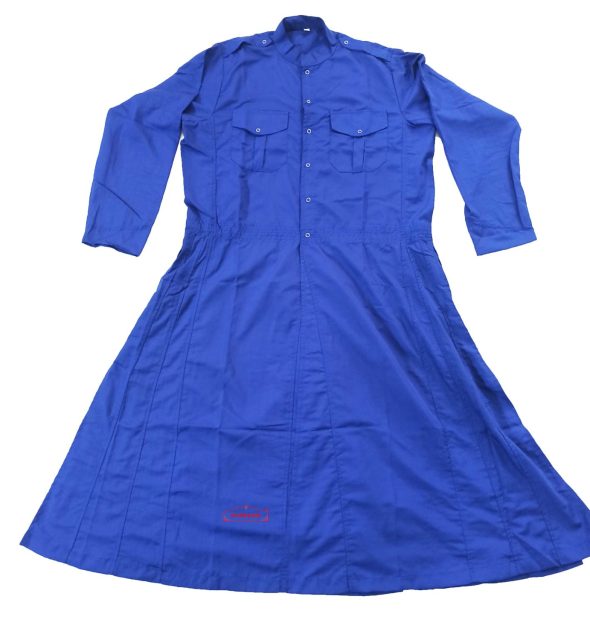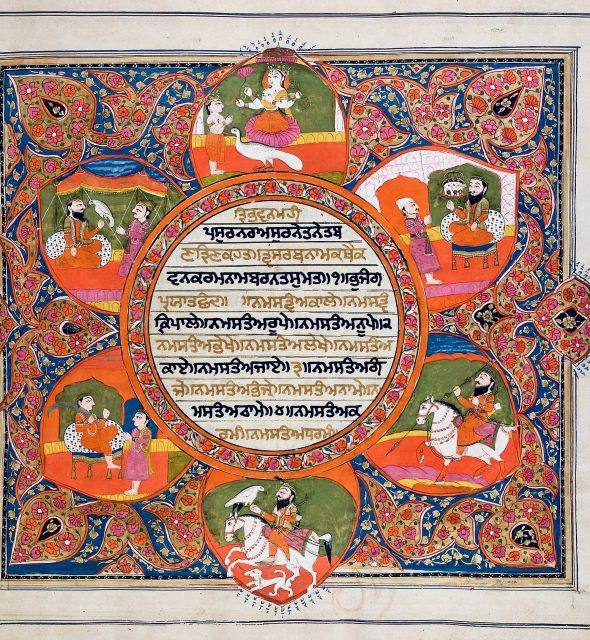BHANU, BHAI, BhaiJattu, Bhai Nihalu and Bhai Tiratha, all Chaddha Khatris, were devoted Sikhs. Once they presented themselves before Guru Arjan to have a doubt resolved. They made obeisance to the Guru and said, "Lord, in one of your hymns there is a line: `He alone kills and He alone saves; there is nothing in man`s power.` Yet another hymn says: `In this field of action, as thou so west, so shalt thou reapest.` Which of the two precepts shall apply? Because, if He performs or gets performed all actions, how are we answerable for them? And, if we have to suffer the consequences of our actions, we must have the freedom to act with discretion." The Guru, as says Bhai Mani Singh, Sikhan di Bhagat Mala, replied: "Some merit liberation through action, some through worship, some through knowledge.

BAANA: Literally: dress. In Sikh cultural terminology it means all the five Kakaars (articles of faith) plus a Chola (a long shirt), a tight fitting trousers, a Kamarkassa (a belt to tighten Gaatra and like a sash around the waist) which make one very active. This was actually a dress for the battlefield. A Sikh is expected to be ever ready in Baana at every moment because for a Sikh the world is like a battle field and he/she has to act in every situation in the discipline of a soldier in a battle field.

FATEHNAMAH, by Bhai Dyal Singh, is a versified account of the victory (fateh, in Persian) of the Sikhs in the battle fought on Sunday, 22 Baisakh 1854 Bk/30 April 1797, against Shah Zaman`s forces led by one of his generals Ahmad Khan, also called Shahanchi Khan, in which the latter got killed and his forces fled the field. Nothing is known about the poet who, judging from his diction, belonged to the western parts of the Punjab. The poet showers special praise on the Sikh warrior.


